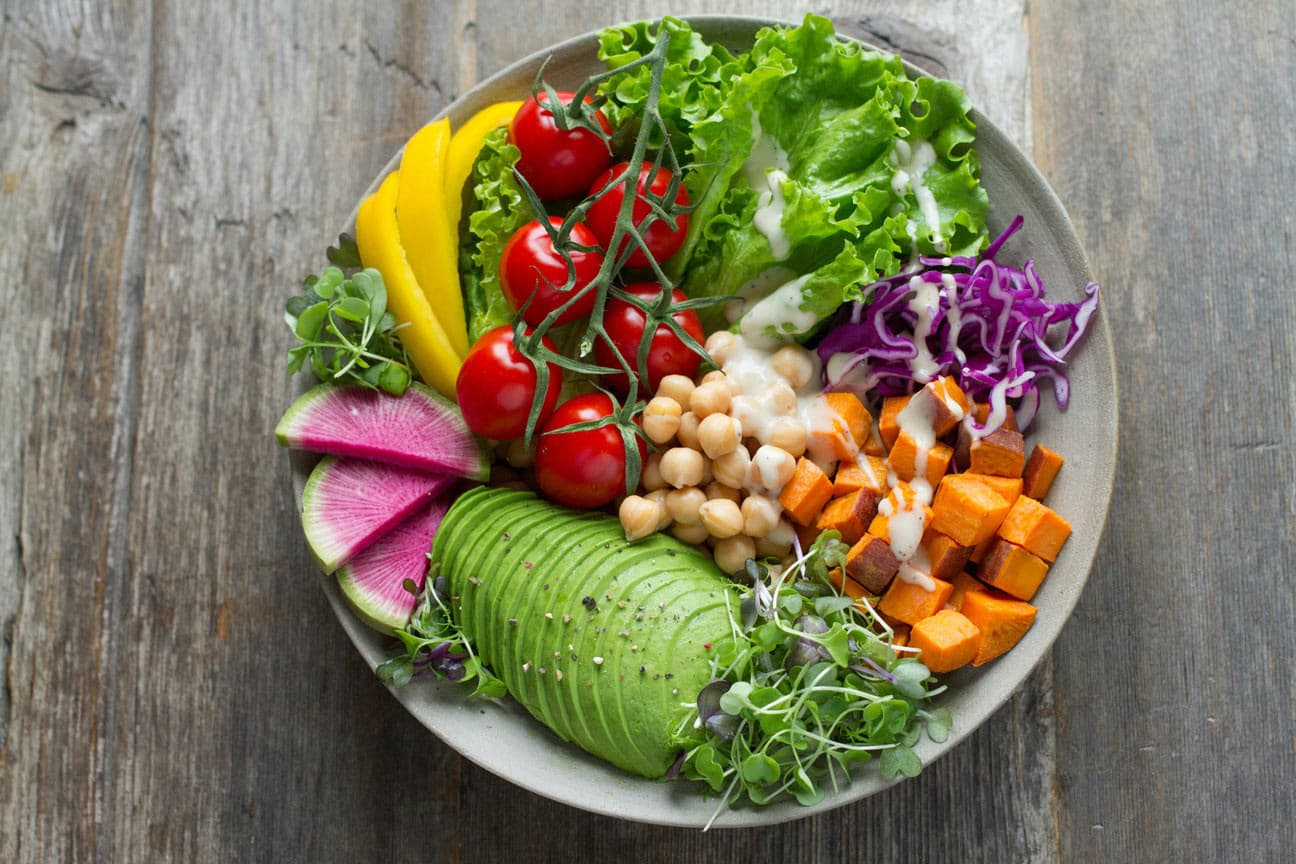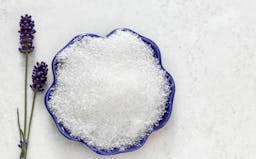Maximize Digestion: Unlock the Secrets to Optimal Health
Article by:
Irena Kekic |
16 min read
Did you know that digestion is the foundation of your health and vitality? It’s not just about what you eat but also how and when you eat that shapes your well-being. The stomach acts as the central hub of health, influencing every part of your body. The food you consume and how your body processes it plays a direct role in who you are, from the energy you feel to the strength of your immune system.
But here’s the kicker: the benefits of food don’t solely depend on how much you eat—they hinge on how well your body digests and absorbs those nutrients. So, how can you unlock the full potential of your meals and keep digestion running smoothly?
Get ready to discover how small, mindful changes can pave the way for a healthier, happier you!
The Importance of Digestion
Did you know that the majority of your immune system is rooted in your gut? Approximately 70-80% of immune cells are located in the digestive system, underscoring the profound connection between gut health and overall immunity.1 Proper digestion is essential not only for breaking down the food we eat but also for ensuring that critical nutrients are absorbed efficiently, fueling our bodies and fortifying our defenses. Our choices, such as diet, lifestyle, and stress management, have a significant impact on the health of our gut flora, which in turn has enormous repercussions on our overall health.
When digestion functions optimally, we extract the maximum nutrition from our food, which supports a robust immune response. This helps to protect us from infections and illnesses by ensuring our immune system has the resources it needs to function at its best. Conversely, poor digestion disrupts this balance, leading to nutrient deficiencies and weakening the immune system. Over time, this can leave the body more susceptible to chronic conditions and digestive disorders. Nurturing a healthy gut is foundational to maintaining a resilient and vibrant body, making it a vital aspect of overall health.
For more insights into how proper nutrition fuels overall well-being, visit the Nutrition for Maximum Health section on Amazing Health.
Inside the Digestive Process: The Path of Macronutrients
Ever wonder how your body turns meals into energy? Digestion is a fascinating and precise process that transforms the food we eat into vital nutrients—and yes, it works like clockwork! By learning how your body processes carbohydrates, proteins, and fats, you can make healthier choices and steer clear of discomforts like bloating or bubble gut. Curious? Let’s see how it works!
Carbohydrate Digestion
Mouth: The digestion of carbohydrates begins in the mouth, where salivary amylase starts breaking down starches into simpler sugars.
Stomach: Once the food reaches the stomach, the acidic environment halts the activity of salivary amylase, temporarily pausing carbohydrate digestion.
Small Intestine: As the partially digested food enters the small intestine, pancreatic amylase continues the breakdown of carbohydrates into disaccharides and monosaccharides, which are then ready for absorption. Carbohydrates are the body's primary source of energy, fueling vital functions, physical activity, and brain health while supporting proper metabolism and overall well-being.
Protein Digestion
Stomach: Protein digestion primarily begins in the stomach, where the enzyme pepsin, activated by stomach acid, starts breaking down protein structures into smaller peptides.
Small Intestine: In the small intestine, pancreatic enzymes such as trypsin and chymotrypsin further degrade peptides into amino acids, which are then absorbed into the bloodstream.
Fat Digestion
Mouth and Stomach: The digestion of fats starts minimally in the mouth with lingual lipase and continues in the stomach with gastric lipase, but these stages play a minor role.
Small Intestine: The majority of fat digestion occurs in the small intestine. Bile acids from the liver emulsify fats, increasing their surface area. Pancreatic lipase then breaks down triglycerides into free fatty acids and monoglycerides, facilitating their absorption.
For a deeper understanding, check out Dr. Veith’s video, The Science of Health: Carbs, Proteins, Fats, where he delves into the intricate processes of digestion and how the body utilizes carbohydrates, proteins, and fats for nourishment and vitality.
1. Chew, Chew, Chew
Since digestion begins in the mouth, this first critical step plays a vital role in nutrient absorption. Thorough chewing ensures that salivary enzymes mix effectively with the food, initiating its breakdown and preparing it for the next stages of digestion. The effectiveness of this process is not just about how much we eat, but how well our food is digested.
Solid foods should be chewed until they reach a "juicy" consistency, giving digestive fluids the time and opportunity to act effectively. While soft diets, such as smoothies, soups, purees, or foods with a pudding-like consistency, may seem convenient, they bypass the crucial chewing process. Chewing stimulates digestive enzymes essential for breaking down food and absorbing nutrients. Relying too heavily on these foods—especially as meal replacements—can weaken digestion over time. Perhaps trying to "chew" your smoothies and other liquid foods could make a difference. While you don’t need to chew them as thoroughly as a salad or an apple, holding them in your mouth and mimicking the chewing process helps activate digestive enzymes. This simple step can support better digestion, nutrient absorption, and assimilation, positively impacting your overall digestive health.2, 3
These types of meals are best enjoyed occasionally rather than daily, to maintain optimal digestive function. Taking the time to chew thoroughly, even with softer foods, helps maximize the benefits of the food we consume.4, 5
2. Plant-Based Diets and Digestive Health
What are the healthiest foods for humans? A well-balanced plant-based diet provides all the nutrients for optimal health and is the best fit for the human digestive system. Whole plant foods like fruits, vegetables, whole grains, legumes, nuts, and seeds are rich in dietary fiber, which plays a crucial role in maintaining a healthy gut. Discover how to maintain optimal gastrointestinal health by watching our video, Healing the Gut: Keeping the Colon Regular. It’s packed with valuable insights to help you care for your digestive system!
Fiber aids digestion by adding bulk to stool, supporting regular bowel movements, and nourishing beneficial gut bacteria for a healthier microbiome. Plant-based diets, rich in fiber, are linked to lower rates of digestive disorders like IBS (irritable bowel syndrome), constipation, and acid reflux.6 Unlike meat, which takes longer to digest (1–3 days to break down due to its high protein and fat content) and may disrupt gut health, plant-based foods promote microbiome balance and efficient toxin elimination.7 Studies also highlight their protective role against digestive system cancers.8 Overall, plant-based diets are lighter, easier to digest, and support overall digestive health.
Research demonstrates that plant-based diets can effectively prevent and manage digestive diseases. This is attributed to their high fiber content, anti-inflammatory properties, and the presence of phytonutrients that nourish the gut microbiome. This beneficial effect is partly due to fiber's ability to promote a healthy gut lining and reduce inflammation within the digestive system.
In our detailed article, Nutrition for Maximum Health you can discover how a plant-based lifestyle can support overall well-being and longevity.
3. The Science Behind Proper Food Combinations
If you’re looking to elevate your plant-based diet and unlock its full potential, mastering the art of proper food combinations can make a noticeable difference. Thoughtful food pairing not only enhances nutrient absorption but also minimizes digestive issues. So, what are the dos and don’ts when it comes to food combinations?
- Pair Proteins with Non-Starchy Vegetables
- Example: Lentils with spinach or kale
- Benefits: Better digestion and nutrient uptake
- Pair Whole Grains with Vegetables
- Example: Quinoa or brown rice with bell peppers or broccoli
- Benefits: Balanced meal, easy on the digestive system
- Avoid Mixing Fruits and Vegetables
- Why: Fruits digest quickly, while vegetables digest slowly, which can cause fermentation and discomfort when combined.
- Exception: Non-starchy vegetables like leafy greens, cucumbers, and celery can pair well with fruits.
- Example: A green smoothie with spinach, kale, and banana is not a problem for most people because it combines broken down leafy greens with easy-to-digest fruit.
Combinations to Avoid
- Milk and Sugar: Pairing sugar and milk can feed bacteria in the digestive system, causing gas, bloating, and acidity. This fermentation disrupts digestion and may impair nutrient absorption.9, 10
- Combinations for Better Absorption
- Pair: Healthy fats with vegetables (e.g., avocado or olive oil with a salad)
- Benefits: Helps absorb fat-soluble vitamins more effectively
If you want an in-depth guide on best and worst food combinations make sure you check out our Plant-Based Food Combining!
 Photo via Unsplash.
Photo via Unsplash.
4. Eat, But Don’t Drink
Should we be drinking while eating? Only if necessary! The best practice would be to avoid consuming large amounts of liquid during meals, especially cold beverages. Cold water slows down digestion by reducing the flow of salivary enzymes. As health advocate Ellen White wisely observed: “Ice water or ice lemonade, drunk with meals, will arrest digestion until the system has imparted sufficient warmth to the stomach.”11
Modern advertising, especially from fast-food chains, has heavily influenced the habit of pairing meals with oversized, ice-cold drinks—not for health benefits, but purely to drive sales. Over time, this marketing strategy has led many to overlook fundamental principles of healthy eating, including the importance of proper hydration.
Instead, prioritize drinking water between meals to stay hydrated and support your body’s natural digestion. Are you curious about how much water you need and the best time to drink water? For detailed guidance, check out our article, How Much Water Should I Drink in a Day?
5. Cultivate a Peaceful Mindset
How do our minds affect our digestion? Is there a connection? Yes! Stress, anger, and anxiety can disrupt digestion. Negative emotions at mealtime can cause sphincter muscles in the digestive tract to contract, blocking the release of digestive fluids. It’s essential to create a calm, unhurried environment when eating.
Gratitude can also play a role. A positive mindset promotes better digestion and enhances the body's ability to assimilate nutrients.
6. Timing Matters
Timing matters just as much as the food you eat, especially for digestion. Surprisingly, many people are unaware of this and believe eating at any time or choosing any food is fine. Unfortunately, this isn't true. If health professionals emphasized this point more consistently and effectively, people might better understand the importance of regular mealtimes. Eating at consistent times aligns with your body's natural rhythms, enhancing digestion.
For example, your body is more insulin-sensitive in the morning, helping to fuel your day, while at night, insulin resistance increases, causing late-night calories to be stored as fat. Late-night snacking often involves unhealthy, mindless choices like chips or ice cream, further disrupting a balanced diet. To optimize digestion, aim to space meals evenly, with at least 5-6 hours of fasting between each. Many find that two meals a day are more effective for maintaining health than three.12
Consuming your last meal at least three hours before bed allows your stomach to rest during sleep, as digestion slows significantly when the body is at rest, promoting better digestion and improved sleep quality.13 In our article, When And How Often Should You Eat, we explore the best meal timings to enhance digestion, sleep, and metabolic function.
7. Breakfast: The Most Important Meal
Your body is naturally more sensitive in the morning, primed to provide the energy needed to fuel your day. Starting with a hearty, nutrient-rich breakfast capitalizes on your digestive system's peak efficiency, making it the perfect opportunity to consume a larger portion of your daily calories. A well-balanced breakfast not only promotes optimal digestion but also lays the foundation for sustained energy and focus throughout the day.
Therefore, never skip your breakfast no matter how busy your days are!
8. Choose Wisely: Foods That Aid Digestion
Certain foods offer exceptional benefits for digestion and overall health. These additions can deliver a variety of health advantages while supporting a healthy digestive system. Here are a few you can start incorporating into your meals today!
- Cabbage: Raw cabbage digests faster (1.5 hours) than boiled cabbage (4.5 hours) and is rich in vitamin C and indoles, which may help reduce cancer risk.
- Carrots: Packed with vitamins and minerals, especially in the skin, carrots support growth, strengthen bones, and aid digestion.
- Celery: A natural diuretic, celery helps eliminate waste and supports kidney function. Celery juice is excellent for detoxification.
- Cucumber: A diuretic that aids in weight loss and detoxifies the body. Eating cucumber regularly can help firm tissues and reduce cellulite.
- Figs: High in calcium and fiber, figs help relieve constipation and digestive ulcers.
9. Don’t Overeat
Overeating burdens the digestive system, leading to fatigue, bloating, and long-term health issues. Instead, practice mindful eating. Stop when you feel satisfied, not overly full.
10. Limit Variety at Meals
While dietary variety is essential for balanced nutrition, excessive diversity within a single meal may lead to increased overall food intake. A systematic review and meta-analysis published in the American Journal of Clinical Nutrition found that a greater variety of foods can lead to higher consumption during meals. This suggests that offering too many different dishes at once might encourage overeating, potentially overwhelming the digestive system.14
To promote efficient digestion and nutrient absorption, consider limiting each meal to 3-4 dishes. While variety is important in a diet, too many different foods at one meal can overwhelm the stomach. Rotating your menu across different meals ensures a balanced intake of nutrients over time without overburdening the digestive process. This approach aligns with traditional dietary practices, such as the Japanese concept of meals comprising a staple grain, a main, and side dishes, which has been associated with improved nutritional adequacy.15
11. Hydration
Hydration plays a crucial role in optimizing digestion, but the timing of water intake can significantly impact its benefits. Drinking water an hour or two before meals can be particularly beneficial for several reasons. Prioritizing hydration before meals can enhance the digestive process and contribute to overall digestive health in the following ways:
Supports saliva production: Proper hydration ensures the production of saliva, which is essential for thoroughly chewing food and breaking down carbohydrates in the initial stages of digestion.
Provides fluid for digestive juices: Staying adequately hydrated gives your body the necessary fluid to produce saliva and gastric juices, which are critical for breaking down and absorbing nutrients.
Prevents stomach acid dilution: Avoid drinking before meals to prevent diluting stomach acid, which is essential for breaking down proteins and other food components effectively.
Aids protein digestion: Proper hydration helps the body digest proteins efficiently, supporting overall digestive health.
Prevents constipation: Staying hydrated ensures smooth digestion and helps prevent constipation by keeping the digestive tract well-lubricated and functional.
12. Post-Meal Activity
Avoid heavy exercise or deep study immediately after eating, as it diverts energy away from digestion. Instead, take a short walk with an upright posture. Walking improves digestion and stimulates metabolism.
13. Connection Between Gut and Brain?
Did you know your gut and brain are constantly talking to each other? It’s true!
This connection, known as the gut-brain axis, is like a two-way highway linking your stomach and your mind. Your gut isn’t just for digesting food—it’s packed with nerves and produces many of the same neurotransmitters as your brain, like serotonin, the "feel-good" chemical. When your gut is healthy and balanced, it helps keep your mood, focus, and mental clarity in check. But when things go off balance, it can contribute to issues like anxiety, depression, or even brain fog. So, taking care of your gut with wholesome foods, probiotics, and stress management doesn’t just benefit your digestion—it’s a boost for your brain, too!
Curious to learn more about this powerful connection? Check out the article Gut-Brain Connection—it’s a must-read for uncovering how your gut influences your mind and body in amazing ways!
The Key To Healthy Digestion
A healthy gut is the cornerstone of a vibrant, energized life, influencing your immunity, mental clarity, and overall well-being. Simple habits—chewing thoroughly, eating mindfully, and embracing a fiber-rich, plant-based diet—can transform your digestion and empower your body to function at its best.
The choices you make daily—what you eat when you eat, and how you eat—have the power to pave the way for a healthier, more vibrant you. A well-nurtured gut doesn’t just lead to better digestion; it also supports your immune system, enhances your brain health, and helps you thrive in every aspect of life. Each small, mindful choice you make paves the way to a healthier, happier you. So, take that first step today—whether it’s savoring your meal, trying a new recipe, or taking a calming walk after eating.
As Hippocrates wisely said, “All disease begins in the gut.” Nurture it well, and let your health flourish.
These statements have not been evaluated by the Food and Drug Administration or Health Canada. Our articles, videos and products are not intended to diagnose, treat, cure, or prevent any disease. If you are pregnant, nursing, taking medication, or have a medical condition, consult your physician before following any recommendations or using any product on our site. You assume sole responsibility for your personal health, and you must use your own discretion under doctor consultation to determine whether any product or recommendation on this site is suitable for your personal situation.








